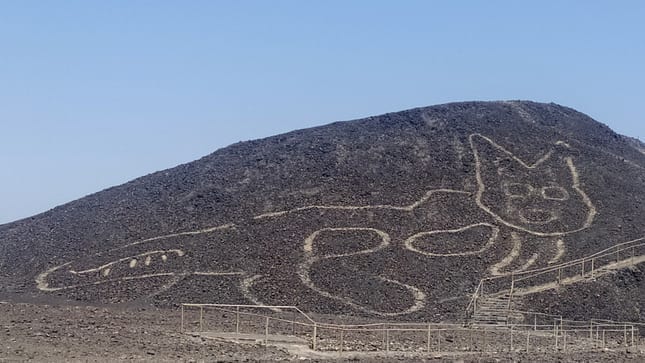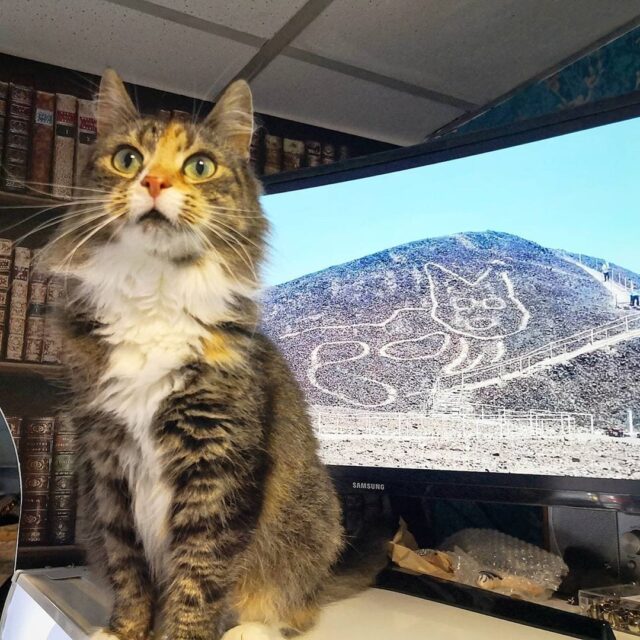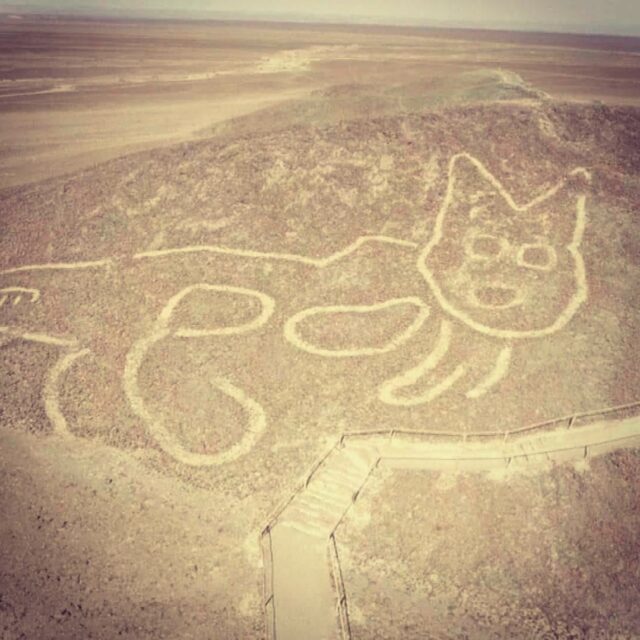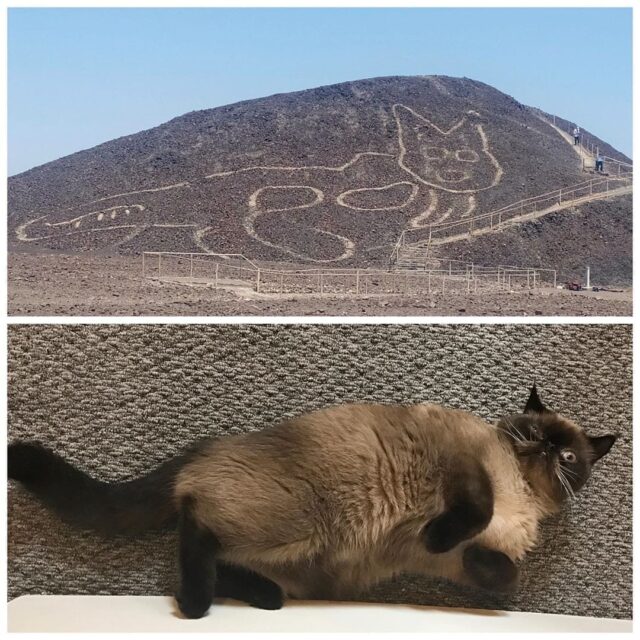The Nazca Lines have fascinated us since first discovered in 1927 and mystery still surrounds the hundreds of geoglyphs etched into the coastal desert of Peru.
The geometric line, animal, and plant glyphs stretch across the land some 250 miles south of Lima and include a hummingbird, a spider, and what many argue to be an astronaut. Sparking theories and inspiring debate, the 275 square foot site was created by the Nazca people between the years of 500 BC to 500AD.
As a Unesco world heritage site, preservation work is ongoing at the Nazca site and continues to yield discoveries about the past that leave us in awe. Another has recently been recently revealed to the world, marking another significant event for 2020.
And cat lovers are thrilled for this discovery!

Courtesy of Peru’s Ministry of Culture Communication and Image Office
The Nazca Feline
Like the cats we know and love today, the Nazca feline was hiding behind brush and rocks trying not to be seen. But, before the cat glyph could disappear forever, it was found during work to make a hillside more accessible for viewing many of the glyphs.
“The figure was scarcely visible and was about to disappear because it’s situated on quite a steep slope that’s prone to the effects of natural erosion,” according to Peru’s Ministry of Culture.
Once found, “the geoglyph was cleaned and conserved, and shows a feline figure in profile, with its head facing the front.”
At 37 meters long, or 121 feet, and made up of lines roughly a foot in width, this cat sprawls over the hillside taking up all the space just like felines of this modern era. This proves cats have owned their space for centuries upon centuries. And the Nazca feline has been owning its hillside longer than some of the more famous images, dating to around 100 to 200 BCE. Experts match this style of cat imagery to “the iconography of ceramics and textiles of the Paracas society.”
Like the other lines and geoglyphs, this newly discovered cat, as well as other images recently found by drones, “make up a cultural landscape with deep meaning and symbolism, as they express the magical and religious world of the pre-Hispanic Paracas and Nasca societies.”
While the purpose behind the glyphs and lines is still a mystery, with theories ranging from religious to astrological, one thing they certainly show us is the rich and complex artistry of human cultures past. It’s awe-inducing to realize these creations have stood the test of time to remind us how far back our history and the history of the cat reaches.
H/T: www.guardian.com
Feature Image: Peru’s Ministry of Culture Communication and Image Office




